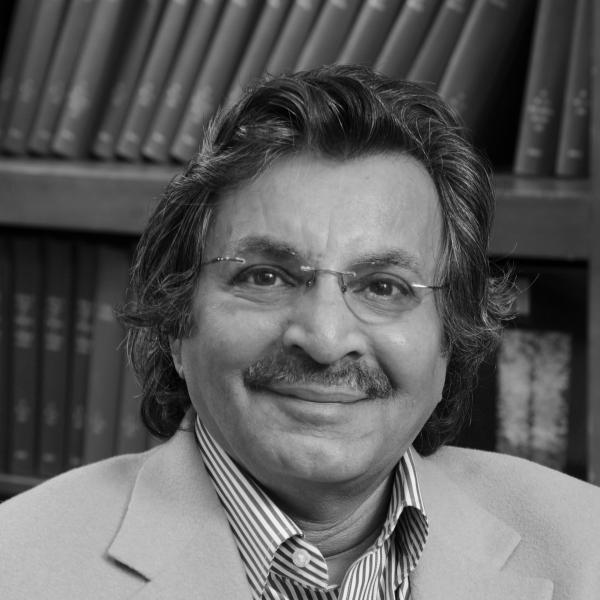Dr. Prabhakar notes that the revolutionary advances in cell and molecular biology, as well as in genetic engineering over the past half-century, have provided remarkable insights into the structure and function of biological systems at the molecular, cellular, and sub-cellular levels. He observes that the shift in research emphasis from organ-level (or whole-body) studies to cellular and molecular physiology has coincided with a rapid decline in systems-level physiological research. While acknowledging the power of reductionist approaches, Dr. Prabhakar highlights the significant gap that has emerged between our understanding of molecular and cellular changes and their effects at the organ or whole-animal level.
According to Dr. Prabhakar, integrative physiology addresses this gap by incorporating concepts from cell and molecular physiology and biochemistry, applying them to understand function at the level of the whole animal or organ. Recognizing the importance of this approach, the University of Chicago established the Institute for Integrative Physiology (IIP) within the Biological Sciences Division in October 2010.
Dr. Prabhakar explains that the IIP was created to serve as an intellectual hub for faculty engaged in diverse areas of physiology, to promote collaborative research initiatives, and to oversee physiology education for medical, graduate, and undergraduate students. These objectives are supported by the IIP’s distinguished faculty. Dr. Prabhakar believes that the IIP extends well beyond the Biological Sciences Division to elevate the national and international visibility of physiological research at the University of Chicago and to train the next generation of leaders in the field.
Nanduri R. Prabhakar, Ph.D., D.Sc.
Harold Hines Jr. Professor of Medicine
Director, Center for Systems Biology
Director, Oxygen Sensing Department of Medicine
Ruhr University
Bochum, Federal Republic of Germany
D.Sc. - Biology
1982
M.S. University
Baroda, India
Ph.D. - Physiology
1979
Activation of the Carotid Body by Kappa Opioid Receptors Mitigates Fentanyl-Induced Respiratory Depression.
Activation of the Carotid Body by Kappa Opioid Receptors Mitigates Fentanyl-Induced Respiratory Depression. Function (Oxf). 2025 May 19; 6(3).
PMID: 40378144
Signal Transduction Pathway Mediating Carotid Body Dependent Sympathetic Activation and Hypertension by Chronic Intermittent Hypoxia.
Signal Transduction Pathway Mediating Carotid Body Dependent Sympathetic Activation and Hypertension by Chronic Intermittent Hypoxia. Function (Oxf). 2025 Feb 12; 6(1).
PMID: 39844350
Adrenal epinephrine facilitates erythropoietin gene activation by hypoxia through ß2 adrenergic receptor interaction with Hif-2a.
Adrenal epinephrine facilitates erythropoietin gene activation by hypoxia through ß2 adrenergic receptor interaction with Hif-2a. Am J Physiol Regul Integr Comp Physiol. 2025 Jan 01; 328(1):R75-R80.
PMID: 39585744
Reactive Oxygen species dependent increase in H3K27 acetylation by intermittent hypoxia is regulated by H3S28 phosphorylation.
Reactive Oxygen species dependent increase in H3K27 acetylation by intermittent hypoxia is regulated by H3S28 phosphorylation. bioRxiv. 2024 Sep 09.
PMID: 39314348
Transcriptomic Analysis of Postnatal Rat Carotid Body Development.
Transcriptomic Analysis of Postnatal Rat Carotid Body Development. Genes (Basel). 2024 02 27; 15(3).
PMID: 38540361
P300/CBP Regulates HIF-1-Dependent Sympathetic Activation and Hypertension by Intermittent Hypoxia.
P300/CBP Regulates HIF-1-Dependent Sympathetic Activation and Hypertension by Intermittent Hypoxia. Am J Respir Cell Mol Biol. 2024 Feb; 70(2):110-118.
PMID: 37874694
Correction: Hypoxia induced hERG trafficking defect linked to cell cycle arrest in SH-SY5Y cells.
Correction: Hypoxia induced hERG trafficking defect linked to cell cycle arrest in SH-SY5Y cells. PLoS One. 2024; 19(1):e0297301.
PMID: 38206933
P300/CBP Regulates HIF-1 Dependent Sympathetic Activation and Hypertension by Intermittent Hypoxia.
P300/CBP Regulates HIF-1 Dependent Sympathetic Activation and Hypertension by Intermittent Hypoxia. Am J Respir Cell Mol Biol. 2023 Oct 24.
PMID: 37874694
Editorial: Vascular pathophysiology in hypoxia.
Editorial: Vascular pathophysiology in hypoxia. Front Physiol. 2023; 14:1235383.
PMID: 37485063
Hypoxia sensing requires H2S-dependent persulfidation of olfactory receptor 78.
Hypoxia sensing requires H2S-dependent persulfidation of olfactory receptor 78. Sci Adv. 2023 07 07; 9(27):eadf3026.
PMID: 37406126
Elected Fellow of the American Physiological Society
2017
AAIMS Silver Jubilee Oration Award
2017
Michael de Burgh Daly Award, Physiological Society, U.K.
2016
Inaugural Lahiri-Cherniack Lecture, American Physiological Society
2016
Plenary Lecture, Oxford Meeting, Sydney, Australia
2015
Elected Foreign Member of National Academy of Sciences India
2015
Inaugural C. von Euler Lecture, Karolinska Nobel Institutet, Stockholm, Sweden
2014
Plenary Lecture, PanAm Physiological Congress, Brazil
2014
Prof. Mahabalinos Award, Physiological Society of India
2014
Mario Toppo Distinguished Scientist Award, ASIOA
2013
Julius H.Comroe Distinguished Lecture Award American Physiological Society
2012
Plenary Lecture. British Physiological Soc. Birmingham, U.K.
2010
Neil S. Cherniack Lecture, Case Western Reserve University, Cleveland
2008
A.S. Paintal Award, University of Delhi
2008
Dr. P.C.Roy Oration Award. Indian Physiological Society
2007
Plenary Lecture, Brazilian Physiological Society
2005
Plenary Lecture, O2 Homeostasis, University of Cardiff, U.K.
2005
Nobel Forum: Invited Speaker, Nobel Symposium on Oxygen Biology, Stockholm Sweden
2004
